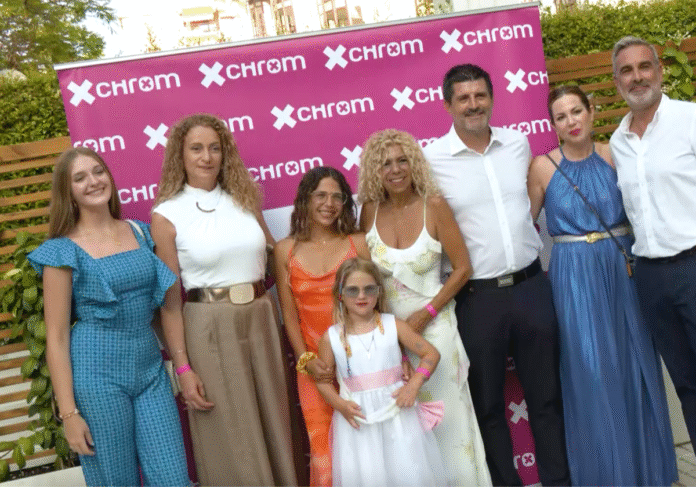Television presenter Nicole King hosted an event at the Mercato della Fontanela restaurant in Marbella this week to relaunch Xchrom in Spain, a ground-breaking optical technology that redefines how we process the world around us. King, who presents the Marbella Now and Good Morning Spain programmes, described the technology as “extremely important”, because, unlike traditional lenses that merely correct the position of an image on the retina using dioptres, Xchrom works by adjusting the frequency of light reaching the eye according to the individual’s needs. King explained that the result is a sharper perception, improved focus, and increased cognitive clarity.
She first learned about Xchrom from her father, who had read an article that was published in the UK press in 2003, and she decided that it could benefit her own children.
“My life was a nightmare at the time, with a dyslexic daughter and a hyperactive son. They were not able to enjoy or progress at school and this produced arguments at home. Finding these lenses changed all that. My son never needed medication and my daughter could follow her career,” the presenter told SUR in English.
Following the import restrictions caused by Brexit, Xchrom is once again available in Spain thanks to Farmaquisur, a Malaga-based company that has secured all the necessary licences for national distribution of both glasses and contact lenses.
“Through Brexit the lenses were no longer available in Spain and although I brought them in to help those I could over the past two decades, with the new license requirements I gave up. When my granddaughter needed them, I found a company in Malaga that could meet all the requirements to import them and we are willing to take the time to make it happen. I am now fully committed to helping as many people as possible,” she explained.
Beyond improving basic vision, Xchrom, which King described as “a life changer”, provides meaningful relief for individuals with light sensitivity, migraines, reading difficulties, dyslexia, attention deficits, screen-related eye fatigue, and other visual or neuro-sensory challenges that often go undiagnosed, but which significantly affect learning and quality of life.







